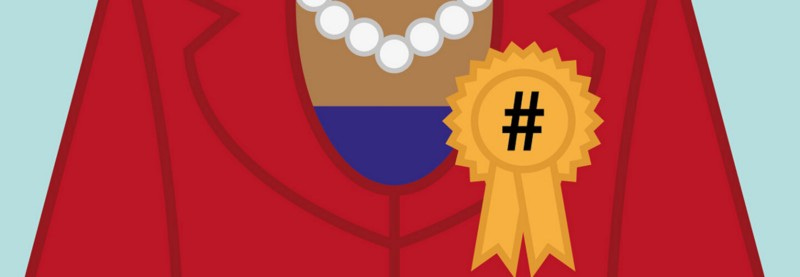#JezWeCan: What we can learn from the surprising efficacy of a modern political hashtag
Jeremy Corbyn’s Labour leadership campaign hashtag #JezWeCan has been used over 82,000 times since the end of August. What’s the secret…
Jeremy Corbyn’s Labour leadership campaign hashtag #JezWeCan has been used over 82,000 times since the end of August. What’s the secret behind this oddly perfect political hashtag?
Jeremy Corbyn’s Labour leadership campaign hashtag #JezWeCan has been used over 82,000 times since the end of August. #JezWeDid has been tweeted over 16,000 times in the five days since his victory was announced (data via Topsy). What’s the secret behind this oddly perfect political hashtag?
Which of the following do you remember: #TeamLiz, #YvetteForLabour, #Andy4Leader, #ReadyForDiane, #TeamTessa, #voteLammy? These are six slightly different hashtags representing six very different people, but they’re all essentially the same — different riffs on ‘vote for person X’. Sure, they fulfil the simple tagging task of allowing people to nail their colours to a tweet to allow public opinion to be measured, but they reek of spin, a ‘quick, we need a hashtag for Twitter’ approach to PR. A journalist friend even told me that one candidate’s team were answering the phone with their hashtag during the campaign.
While they tell you what to do, none of these hashtags tell you why you should do so. The clunky, brilliant for being slightly rubbish pun — based on Jez being a funny diminutive of Jeremy and it sounding a bit like ‘yes’ — perfectly captured the cause at the centre of the Corbyn campaign. It is decidedly unglossy, feeling a million miles away from anything that would come from a slick PR strategy. The slightly rubbish slogan suits the campaign — smart, scruffy, different, rough around the edges, coupled with a disbelieving hope that they just might pull it off.
If you’re asking people to pin their colours to a campaign, let them tell others why while doing so. Spread the cause, not the name.
Sadiq Khan’s campaign for becoming Labour’s London Mayoral candidate was fronted by an equally cheesy hashtag. I had to laugh when I saw #TogetherWeKhan in a tweet announcing the news, assuming that it had been a joke from a friend, a riff on #JezWeCan, before noticing that it had in fact come from Harriet Harman’s account and seemed very much to be the official hashtag for the campaign.
Yes, it is terribly cheesy and elicits a groan when first seen, but you know what, at least it adds something. Khan’s campaign story has been that of the son of a bus driver aiming to be London’s first Muslim mayor. #TogetherWeKhan speaks to that story. #SadiqForMayor just wouldn’t have said anything.
So, what can we learn from teams Jez and Khan about creating hashtags to capture public attention? Being memorable, creating a reaction and leaving an impression are better than saying nothing at all — even if that means a terrible pun. In fact, when it comes to engaging a bunch of cynical Brits, that terrible pun might just be the secret. If you’re asking people to pin their colours to a campaign, let them tell others why while doing so. Spread the cause, not the name.
In the meantime, we must try to write the next campaign slogans that will be in the same league as Obama’s famous Yes We Can, itself appropriated from Cesar Chavez’s Si Se Puede. #YesWeCam might be a bridge too far.


